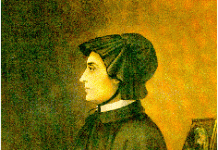This article is the first part of a two-part series on conservative politics in Ontario Provincially and Federally. This article is intended for those interested in getting to know the “who is who” of Ontario provincial politics.
After nearly 700 days since the start of government mandates and extensions of emergency powers in Ontario, political discussions surrounding the upcoming Ontario provincial election are starting to spark into a blaze. On June 2, eligible voters will head to the polls to elect 124 representatives, known as MPPs, members of provincial parliament, in the Legislative Assembly of Ontario at Queen’s Park. Frustrated Ontarians are bound to start asking the question, what happened to the Progressive Conservative Party of Ontario? Why is it suddenly more progressive than conservative?
Currently, the seat breakdown of the Ontario legislature is as follows: Progressive Conservative Party of Ontario: 68 members, New Democratic Party of Ontario: 40 members, Ontario Liberal Party: 7 members, Green Party of Ontario: 1 member, New Blue Party of Ontario: 1 member, and Independent: 5 members. Each these five independent members, Roman Baber, MPP for York Center, Randy Hillier, MPP for Lanark—Frontenac—Kingston, Rick Nicholls, MPP for Chatham-Kent—Leamington, Lindsey Park, MPP for Durham, and Jim Wilson, MPP for Simcoe—Grey, have been removed from the Ford PC caucus. If you include Belinda Karahalios, MPP for Cambridge and co-founder of the New Blue Party of Ontario, who was also removed from the Ontario PC caucus, this raises the tally to 6 of the 74 elected in 2018 which comes out to the removal of 8% of the Ford PC caucus. How can the Ontario PC party expect to win re-election if they keep removing their own members?
The history of the PC party shows that it has always been a more progressive party than a strictly conservative one. The Progressive Conservative Party dominated Ontario’s political system from 1943 to 1985 earning the nickname the “Big Blue Machine.” But was the PC party a true blue conservative party in principle and practice? During this period the party was led by several ‘Red Tory’ premiers: George Drew, Leslie Frost, John Robarts and Bill Davis. These governments were responsible for some of the province’s most progressive social legislation, including the Ontario Human Rights Code, which has beleaguered many Ontarians during this pandemic of emergency powers, the creation of most of Ontario’s welfare state and social programs, and the creation of many Crown Corporations.
In 1985, the party briefly became more ideologically conservative, electing Frank Miller as a new leader. But following the retirement of popular longtime Red Tory Premier Bill Davis, the Liberal-NDP confidence and supply agreement of 1985-1987 allowed Peterson’s Liberals to quickly form a minority government. In the 1987 election, Peterson’s Liberals came back to win a substantial majority in the Legislature. Ontario’s debt was over $3 billion by the end of the year 1990.
The Liberals called a snap election 3 years into their mandate in 1990 but lost, leading to a disastrous NDP majority government under Bob Rae winning with only 37% of the vote. The NDP took power during one of the worst recessions since the Great Depression and won based on the promise of a public auto insurance system which they immediately backtracked on. The NDP was faced with lower revenues and higher expenses leading to an increasing deficit. To combat the growing deficit, the NDP introduced cutbacks to social spending, and the Social Contract, which forced public-sector workers to take the infamous unpaid “Rae Days” holidays every year.
By 1995, Ontario’s unemployment rate was skyrocketing and the deficit was growing. The resurgent Progressive Conservative Party of Mike Harris upset the Liberals and won a majority. Harris campaigned on a controversial agenda known as the Common Sense Revolution, promising to solve Ontario’s economic woes and problems with lower taxation, smaller government and pro-business policies to create jobs. He also campaigned as a populist, which gave him the support of several working-class ridings that normally voted NDP. The 1995 election gave the PC Party a large majority, bringing the Tories back into power, however not under their traditional centrist or Red Tory agenda.
In 1997, the teachers’ union protested with a province-wide two-week strike against the Harris government’s education initiatives. The teachers had a contract so the government determined that the strike was illegal. The strike was over the contentious issue of who holds the power to set education policy in the province. Bill 160 put control of the education system in the hands of the provincial government. It eliminated the ability of school boards and teachers’ unions to set classroom and teaching conditions through collective bargaining.
In 1999, Mike Harris was re-elected with a majority, despite a loss of 23 seats, defeating Dalton McGuinty’s Liberals. The government’s critics alleged that the government’s cuts to the Ministry of the Environment and privatization of water-testing laboratories led to the lack of oversight that resulted in six deaths during a 2000 E. coli outbreak in the public water system of Walkerton, Ontario. Harris’ first balanced budget was also revealed to have occurred because the government leased the province’s 407 ETR toll highway to a private-sector consortium.
Harris stepped down as leader in 2002, the same year I was born. Harris was replaced by Ernie Eves. Eves is known for stopping Harris’s plan to privatize the public electricity system, but not before some parts of the utility had been sold to private interests such as Bruce Power.
In October 2003, Dalton McGuinty led the Liberals return to power. In the summer of 2003, a Court of Appeal for Ontario rulings resulted in Ontario becoming the first of Canada’s provinces and territories to legalize same-sex marriage.
The Ontario Citizens Assembly on Electoral Reform had recommended that Ontario switch to a new electoral system known as mixed-member proportional representation known as MMP. As a result, the Government of Ontario set the date for a referendum on the issue to be October 10, 2007, which was also the date set for the provincial election. The Government also set a “supermajority” requirement that requires the support of at least 60% of voters and majority support in 60% of all Ontario ridings for the proposal to be adopted. These changes were rejected by Ontario voters.
In 2012, Dalton McGuinty announced his intention to resign as the Ontario Liberal Party Leader. The Ontario legislature was hung for six months while Liberals elected Kathleen Wynne leader and Premier in January 2013. Wynne became the first female Premier of Ontario and first openly lesbian premier of any province in Canada. Wynne won a majority in 2014.
Wynne introduced many radically progressive policies. These include a minimum-wage hike, safe-injection sites, affordable housing, increased investment in public transit, reduced tuition for students and increased spending on health care, including free drug prescriptions for persons under 25. The Wynne government sold a majority interest in Hydro One, the electricity distribution system in Ontario, the proceeds enabling the government to balance the budget. After signing a number of contracts with renewable energy producers for electricity, electricity rates to consumers increased substantially and the Wynne government controversially moved to lower rates by renegotiating debt until the 2020s. By the end of her term in 2018, the Liberals were trailing badly in opinion polls.
The biggest scandal of the Wynne government was an updated radical ‘Comprehensive Sex-Ed’ curriculum for primary and secondary schools. The Wynne-Levin sex-ed curriculum went far beyond the basics sex education curriculum. It was handled by disgraced deputy education minister Benjamin Levin who was sentenced to 3 years in prison for child porn-related offenses. This curriculum remains largely the same under Ford’s government.
The 2018 Ontario General Election was unprecedented in the province’s history. The Liberal Party of Ontario lost the greatest number of seats, falling to just 7 of 126 seats, with roughly 19% of the popular vote, and losing Official Party Status for the first time in their history. The Progressive Conservative Party of Ontario saw a large increase in seats, obtaining 76 of 124 possible seats and roughly 41% of the popular vote. Following this unprecedented loss, Wynne resigned and Steven Del Duca replaced her as leader of the Ontario Liberals. Andrea Horwath, MP for Hamilton and leader of the NDP, gained a large portion of support and popularity.
The Ontario PC leadership has undergone significant change in the last two decades. After Eves stepped down in 2004, John Tory won the leadership race against Jim Flaherty and Frank Klees. The PCs were neck and neck with the Liberals but lost the 2007 election. John Tory won his leadership review in 2008 but lost the provincial election in 2009 resulting with his resignation. Party members elected Tim Hudak as the party’s new leader. Hudak ran against Christine Elliott, Frank Klees, and Randy Hillier. Hudak lost both the 2011 and 2014 elections. The Ontario PCs were polling ahead in the 2014 election but lost popularity after Hudak’s campaign pledge to cut 100,000 public service jobs by attrition rather than by layoffs turned people away. Jim Wilson was chosen by the Progressive Conservative caucus to be its interim leader until the 2015 leadership election. The membership elected Patrick Brown, a federal Conservative MP from Barrie, as the leader of the party. Brown ran against Christine Elliott, Vic Fedeli, Lisa MacLeod, and Monte McNaughton.
Now John Tory is the socially progressive mayor of Toronto, Randy Hillier is considered the ultranationalist wingman for the PPC and Patrick Brown is still considered a scamp. The socially conservative element of the Ontario PC’s, represented mainly by two MPPs, Monte McNaughton and Sam Oosterhoff, can hardly still be considered socially conservative because of their compliant stances on the Ford mandates and changes, or lack thereof, of the Ontario sex-ed curriculum.
The political ousting of Jim Karahalios and Derek Sloan from the federal conservative party, and their respective return to the political stage, begs the question, what happened to social conservative champion, Tanya Granic Allen? She is currently working on her own TV show called Counterpoint and doesn’t appear to be interested in making a return to federal or provincial politics in the immediate future, despite gaining a very large amount of support in a short amount of time during the 2018 Ontario PC leadership race which is still fresh in the memory of young folks like myself.
I have been asked by more people than I care to count, why haven’t the socially conservative, anti-lockdown parties and political figures united? Jim Karahalios and the National Telegraph claim that Randy Hillier and Derek Sloan are controlled by Doug Ford to cause enough confusion and anxiety amongst conservative voters to sway them to vote for the PCs. If true, I don’t think this will be a successful strategy for Ford, because the New Blue party has already established a firm foundation, raising a substantial amount of money from donations and memberships and have already set up riding associations and candidate applications in almost all of the ridings in Ontario.
What should we expect in the days ahead? I think Doug Ford knows he cannot win the next provincial election without the support of his conservative voter base. With the left wing vote currently split between the Liberals and the NDP, and the rise of a conservative challenger in the New Blue Party, I predict that Ford will either relax the mandates enough to win more votes or risk losing the election on June 2 by embarrassing margins.
Sources
https://www.ola.org/en/members
https://www.newblueontario.com/randys-deal
https://www.thecanadianencyclopedia.ca/en/article/politics-in-ontario
https://torontosun.com/2015/03/02/liberals-cant-deny-levins-role-with-sex-ed-curriculum











